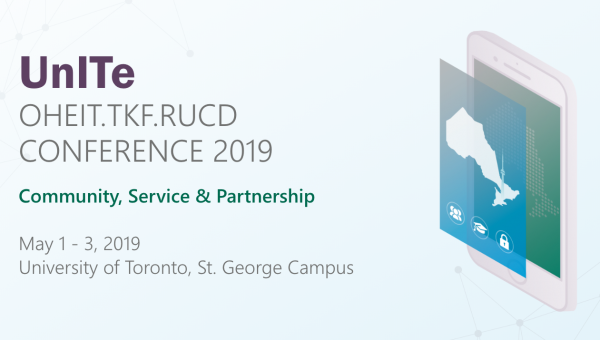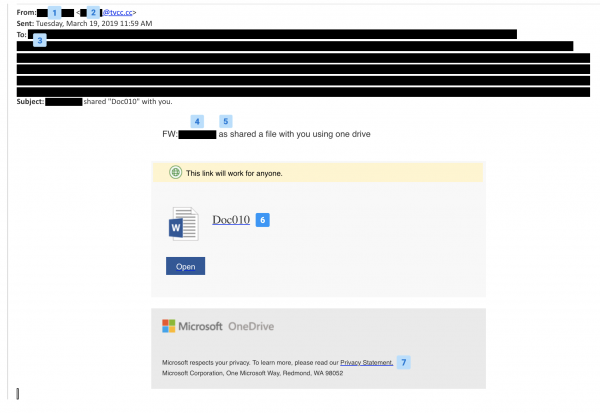Blog

New phishing scams are targeting U of T staff and students
September 5, 2019
September is a busy month for everyone at the University as we gear up for the fall semester. At the University of Toronto (U of T), communication between administrative staff and the student community is at its peak, making it the perfect time for attackers to phish people under the guise of administrative and student ...

Capital One breach: lessons universities can learn
August 13, 2019
In late July, a data breach at Capital One Financial compromised the personal data of more than 106 million people, including six million Canadians. This breach is just another example of a very long list of multi-national companies who have been targeted by attackers in recent years, including Equifax in 2017, Marriott in 2018, Facebook ...

Have you received a possible phishing email? Updated resources are now available
July 30, 2019
The University of Toronto’s Information Security and Enterprise Architecture (ISEA) team is dedicated to keeping information secure for staff, students and faculty alike. The Security Matters website now features an updated Report an Incident section for members of the University community who suspect they have received a phishing email. The update provides practical steps to take if you are the recipient of ...

Special Advisory on phishing messages
July 26, 2019
Recently, the University of Toronto (U of T) has seen an increase in targeted phishing attempts and attacks. These phishing attempts and attacks are becoming more sophisticated and polished. Some of these emails are crafted to look like urgent appeals for action from the signature of U of T leadership, including from high-level University executives, leaders ...

Phishing scams target job-seeking students
June 11, 2019
Since May 25, Information Security and Enterprise Architecture (ISEA) has received several reports of a phishing scam that targets University of Toronto (U of T) students by offering various summer work opportunities. The phishing emails approach students with a job vacancy and prompt the recipient to divulge personal information in order to be considered for ...

Protect your Windows devices against the Remote Desktop Protocol vulnerability
May 30, 2019
On May 14, Microsoft announced a vulnerability in its Remote Desktop Protocol (RDP). The event caused quite a stir in the global information security community: the vulnerability made it possible for unauthenticated attackers to connect to an organization’s computer systems that use RDP. Once connected, the attacker could then execute code, install programs, create new ...

Does your UTORid spark joy? Tidy up your password in three easy steps
April 29, 2019
For many of us the start of spring is synonymous with cleaning out spaces, both physical and virtual: you’ve finally vacuumed under your couch, emptied out your spam folder and submitted three years of overdue taxes. But have you taken a moment to check up on your University of Toronto (U of T) UTORid account? ...

Register for UnITe 2019: a partnership between Ryerson University and the University of Toronto
April 16, 2019
From May 1 – 3 the University of Toronto (U of T) will host UnITe 2019, a three-day conference for higher education information technology (IT) professionals dedicated to technology, higher learning and the collaborative exchange of ideas. UnITe features a partnership of the Ontario Higher Education Information Technology (OHEIT) conference, the University of Toronto’s TechKnowFile ...

Can you spot the phish?
March 22, 2019
This week, a department at the University of Toronto (U of T) received an especially sneaky phishing email. The email used many of the hallmarks of social engineering in an attempt to manipulate recipients into clicking on a malicious link that appeared to be from the department’s manager. Luckily, members of the department recognized that ...

Can machine learning make us more cyber aware?
February 26, 2019
Machine learning has gone from rags to riches over the last decade: once dismissed as a computer scientist’s pipe dream, we now live in the time of the ‘Great A.I. Awakening’ where Google Brain, neural networks and the University of Toronto’s own Vector Institute are no longer niche references for computer scientists. Machine learning has ...
